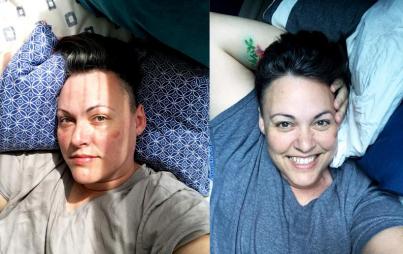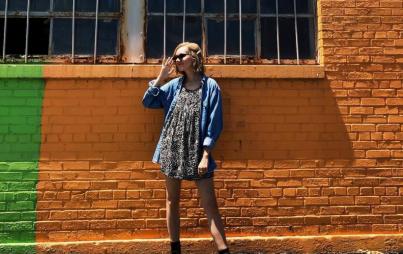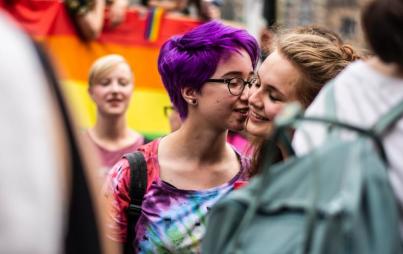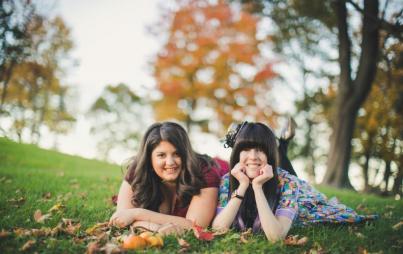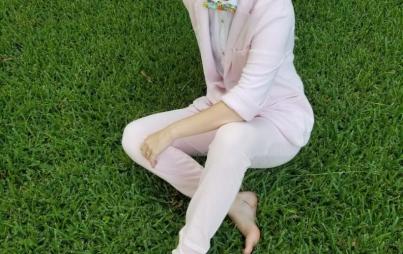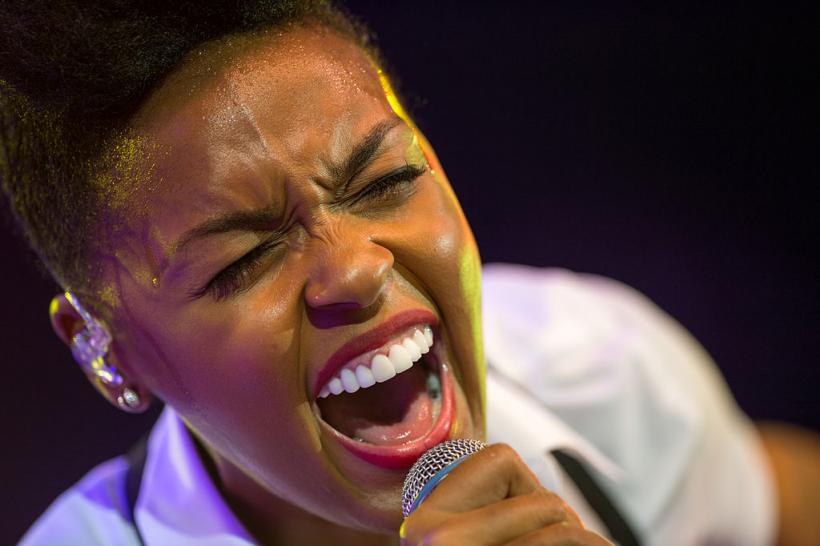
Credit: Wikimedia Commons
Leave Janelle Monae alone.
Twitter ignorance scraped new depths when a random tweeter offered this helpful "advice" to Janelle Monae: “girl stop being so soulful and be sexy . . . tired of those dumbass suits . . . you fine but u too damn soulful man."
Rarely has a Twitter response felt as good as Monae's retort:
Monae was, of course, right: her aesthetic exists irrespective of the whims of a male gaze. She dresses how she wants. She says this is to embrace her working-class background, and I believe that’s the truth. Whether it’s the whole truth—if she enjoys the contextual empowerment of masculinity—isn’t for you or I to know. Let the needle fall where it may, because it’s her business, and that business is doing well. Our business is to create a world where people have the right to dress themselves without fear of gendered and/or sexualized violence.
In for a penny, in for a pound: in respecting Janelle Monae’s rejection of male attention, we must also respect her rejection of queer attention. Some have taken Monae's response to the tweeter as an admission of queerness—not the first time she's been labeled as such, her own voice on the matter be damned. In 2013, "queer lyrics" on her album Electric Lady were also interpreted as "proof" she was a lesbian, speculation Monae herself brushed off.
Speculating on Janelle Monae’s sexuality because she rejects and defies male consumption isn’t just tacky, or belying a tremendous ignorance of “male attention” and why some people don’t want to entertain it—it invites a particular marginalization, and the systemic violence that follows, of someone who hasn’t spoken for themselves.
As a trans woman, I live this marginalization every day. When I was in college, a group of fellow students passed a petition to have me banned from using the womens’ restroom, after sending a police officer in the bathroom with me wasn’t enough. I’ve had employers insist I bind my tits and present as a man if I wanted a job. Every day, I have to read about my friends being kicked out of establishments and harassed on public transit—and I have to work at, no, I have to fight to not let my empathy and desire to support them be pierced by a grateful ignorance; well, it wasn’t me today.
This ride sucks. Or, to use an office metaphor: this company potluck that takes up my one free Saturday fucking blows. But I brought my hot dog casserole. I came out. I knew I would become intimate with hardship. I made a choice to participate. Some days, it is the only semblance of solace I am afforded. I’ll be lucky to live to 40, and I am luckier still that I was able to come out and own the narrative of my life, no matter how or who cuts it short.
When you out people based on what you think are context clues, you take that narrative, and control over their lives, away from them.
Being a highly visible queer woman of color would incur a wealth of thankless hassle, unwanted conversations with entitled LGBT organizations looking to harness Monae's star power for their social media project of the day, and the ever-present, effervescent threat of violence from homophobes. Queer people still get attacked, even in cities like San Francisco.
It is not Janelle Monae’s duty to us to willingly invite this into her life because she doesn’t want random men on Twitter telling her what to wear.
Every time we have this conversation about her—or any female celebrity who expresses any resistance to the male gaze—we thrust anti-queer violence onto them.
We are not going to achieve liberation (or equality, for you more assimilationist types) by rolling this ball around, forcefully integrating every person who might be queer into it, in the hopes that the ball will one day be so big that homophobia will be subject to our gravitational pull. That’s not how revolutions work, that’s not how gravity works, and frankly, if I’m being honest with myself, that's not an accurate retelling of the plot and gameplay mechanics of Katamari Damacy.
There is a sort of greed—you want Janelle Monae to come out, you want her to be queer. You want someone you idolize and appreciate to share something with you. You want to feel less outnumbered by the world, to have someone beautiful and successful with good thoughts and politics to stand by you and help you repel this prejudice of us as dirty, sick, and ugly. The demand comes from a good place, but the way it manifests itself—sharing social media posts of fake coming-outs and writing thinkpieces on the "queerness" of someone who isn't out as queer, is toxically intrusive of the person you supposedly admire.
Is the safety of a woman, one whose presence and visibility you want in our movement, worth the “hot take” and being the first to break a story that’s not a story at all? You won’t sell many rainbow flag bumper stickers, driving everyone indoors, fearing a fervent public teased by your excitations.
Not all of us come out at 16. Not all of us “always knew.” Not all of us struggled with having to carry on doomed relationships that didn’t reflect the truth of ourselves as we understood it.
It’ll only “get better” after we dismantle the singular narrative of queerness. For that, we must dispel with shame. And that means these tactics of yours. Trying to “out someone” implies they should be shamed for being queer or shamed for not being public about it. Tabloid newspaper or “Big Gay” blog—makes no difference. They share a father.
Leave Janelle Monae alone. And Queen Latifah. And Jillian Michaels.
If you have an itch in your trigger finger, I recommend Lush’s Lemony Flutter.

